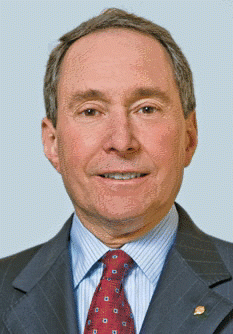Dr. Ossoff said the preparation is an important part of the treatment. Severe inflammation is, to me, a contraindication, he said. It’s just a time to stage and get them into better vocal health, so that when I do operate, I try to create an environment that might be more conducive to healing.
Explore This Issue
September 2009 Severe inflammation is, to me, a contraindication. It’s just a time to stage and get [patients] into better vocal health, so that when I do operate, I try to create an environment that might be more conducive to healing.
Severe inflammation is, to me, a contraindication. It’s just a time to stage and get [patients] into better vocal health, so that when I do operate, I try to create an environment that might be more conducive to healing.-Robert H. Ossoff, MD
Dr. Koufman said that treatment for inflammation might be necessary for surgeons to know what they’re really dealing with. Many patients who come in and look like they might have cysts have so much inflammation, she said. I view the antireflux treatment as part of the diagnostic process in evaluating a patient.
Patient Preparation and Informed Consent
All the panelists stressed the need for a thorough, honest preoperative discussion with the patient about the possible outcomes of surgery, including the possibility of a lengthy recovery time, and to get the patient to understand that, after treating cysts, permanent hoarseness can result.
Especially for cysts, you need a lot of counseling, Dr. Pitman said. Cysts sometimes don’t come out as well as polyps. There’s a little more risk of fibrosis, and there’s a little bit longer healing. And I would also make them visit with a voice therapist at least once or twice, so they really know what to expect after surgery in terms of their rehabilitation regimen.
Dr. Simpson agreed. That’s the big thing, he said. You have to prepare them for a longer period of voice rest, perhaps a longer period until they attain full voice. I always tell them this is going to be one of the hardest lesions to remove, so be prepared for a long recovery period.
Dr. Ossoff said that the expectations of the patient have to mesh with the procedure-the patient has to understand that, when it comes down to it, there is no sure way to predict the outcome.
In informed consent, you want to set the expectation for your patient, he said. You want to let them know this is the toughest type of lesion you operate on. The healing is predictably unpredictable and it can vary anywhere along a bell curve. You have to set that expectation, you have to let them know about how long it might be until they might be back to full vocal voice. If you don’t set that proper expectation, you have very disappointed patients. The time to do it is before you operate. That’s when everything you say is plausible and believable, and if you wait until afterward to tell them these things, it’s sort of like you’re making excuses.
Leave a Reply